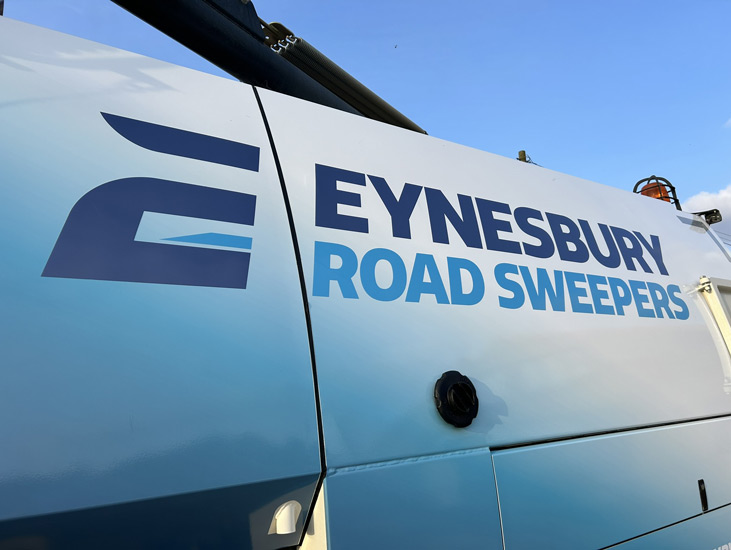
If you’re thinking of hiring a road sweeper to keep your business environment tidy, you’re on the right track. Having clean roads, parking areas, or construction sites doesn’t just enhance appearance, it also boosts safety and impresses clients. In this post, we’ll explore the benefits of hiring a sweeper, show you how to pick the right type, and share tips on cost and sustainability. Let’s dive in!
Explore the benefits of hiring a road sweeper
Picture this: you have debris piling up around your warehouse entrance or car park. It’s not just an eyesore; it could also create slips and trips for visitors. By opting for a road sweeper hire, you tackle several concerns at once:
- Safety first: Removing potential hazards like nails, glass, or loose gravel helps keep people safe.
- Time efficiency: Instead of manually sweeping, an operator can zip through larger areas quickly.
- Good impressions: Cleanliness builds trust. Your premises appear more professional, which your clients appreciate.
Plus, a mechanical or vacuum sweeper can actually lift fine particles that standard cleaning methods might miss. This leads to fresher air around your site and cuts the burden on your team, all while keeping your surroundings presentable.
Pick your ideal sweeper
Not all sweepers are created equal. As research from American company Carolina Industrial Equipment points out, different machines excel under different conditions:
- Mechanical broom sweepers: These have rotating brushes that guide debris onto a conveyor, then deposit it into a hopper. They’re great for heavier items but can struggle in very dry, dusty settings.
- Vacuum sweepers: Using powerful suction, they pull dust, sand, and small debris into a collection bin. Perfect for uneven roads, they’re also comparatively quieter.
- Regenerative air sweepers: These use blasts of air to dislodge dirt and debris, recirculating the air for minimal dust emissions. Ideal if your site needs a greener approach.
Before deciding, consider the typical debris you’ll handle and the size of your space. Open car parking areas might benefit from a mechanical sweeper, while high-dust or urban areas often lean towards vacuum or regenerative models.
Balance costs and care
It’s easy to focus on the initial daily or weekly hire fee, but there’s more to the picture. For example, you should also factor in:
- Fuel or energy consumption: Some sweepers use more fuel or power than others, especially under heavy loads.
- Maintenance and downtime: Reliable machines often require less frequent servicing, saving you from unexpected disruption.
- Operator comfort: If you plan on frequent sweeps, a user-friendly cabin or control panel can help your team stay productive.
Hiring a sweeper can be a cost-effective solution if your needs aren’t constant. That means you skip the hefty upfront purchase price and ongoing repairs. However, if your site has non-stop sweeping requirements, you might reconsider the long-term rental budget vs a dedicated in-house machine.
Stay eco-friendly
Whether you’re clearing construction dirt or busy city roads, hiring an environmentally mindful sweeper can do wonders for air quality. Street sweepers prevent pollutants from being washed into drains, which can lower toxic wastewater discharge. Vacuum or regenerative air sweepers are particularly good for capturing fine particles that might otherwise linger in the air and cause respiratory issues.
If you’re seeking a greener footprint, you can also explore hybrid or electric sweepers. Some models use advanced filtration systems and low-emission technology to protect both local communities and the planet.
Frequently asked questions
1. Is it cheaper to buy or hire a road sweeper?
It depends on your frequency of use. If you need a sweeper only a few times a month, hiring often works out cheaper. But if your roads demand constant cleanup, compare the cost of long-term rental against a one-off purchase.
2. How often should I schedule sweeping?
Most businesses sweep weekly or monthly, but it hinges on foot traffic and the amount of debris. High-traffic areas, construction zones, or dusty surfaces might need more frequent sweeps.
3. Can I handle different types of waste with one sweeper?
Yes, many sweepers can handle mixed debris, from light dust to heavier items like leaves or gravel. Just make sure you pick the machine type that suits your most common contaminants.
4. How do I know if a sweeper is environmentally friendly?
Look for features like dust-control technology, low-emission engines, advanced filtration, or even electric/hybrid setups. These not only help maintain clean streets but also cut back on air and water pollution.
5. Who operates the sweeper?
Some hires include a fully trained operator. If not, your staff may need brief training to drive safely and perform simple maintenance checks. Always clarify these details with the hire provider beforehand.
A road sweeper can transform your outdoor areas, streamline your operations, and help you make a positive impression on clients and the local community. By choosing the right model and keeping an eye on costs and eco-friendly features, you’ll save both time and stress in the long run. If you’re ready to get started, why not explore a hire option or talk to a reputable provider about the best machine for your job?